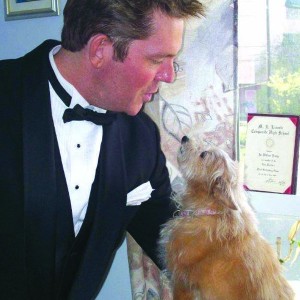The Aging Personality, Part Two
The Delights of Aging: Liberation and Retirement
There is a group of women in McCauley who get together every Christmas to bake and swap cookies. They also spend a lot of time visiting with each other. They have been doing this cookie swap for more than 10 years, although I only joined in 2006 when we moved into McCauley. I have known all these women for much longer because of my work and community involvement. Through the years we have worked together, fought elections together, and played together.
A few years ago one of the women, who is slightly younger than me, asked me what the 60s were like. At that time I was still in the Re-evaluation phase I wrote about in the previous two columns and I wasn’t feeling too wonderful. In keeping with that phase, I was about to “retire” from the Executive Director position at HIV Edmonton. We had just moved into the neighbourhood, and some of our family members were experiencing health issues. My life felt unsettled and stressful. I declared, therefore, that the 60s weren’t so great.
A few years later when some of those issues had settled down my view was completely different. I had left my director’s position and had done an unexpected variety of jobs. We had adjusted to the move and those health issues had shifted somewhat. But most importantly, I had shifted into the second phase of the aging personality. Gene Cohen in The Mature Mind calls this phase Liberation. Liberation, he writes, can resemble adolescence. Haven’t we heard that expression when referring to older adults: “Oh, gosh, he’s behaving just like an adolescent!” or “She’s in her second childhood.” The individuals in Cohen’s book use words like effervescent, emancipation, freedom, and lightness to describe this stage.
Cohen goes on to write that in this phase people have a newly found comfort with who they are. They also have the courage to express themselves more freely and to try new things. “Creative activities are charged with the added energy of personal freedom,” he says. There is psychological freedom, actual time (because of retirement), and newly freed energy. Cohen states that “previous inhibitions lift and [individuals] are increasingly apt to ignore social conventions.”
If my friend were to ask me now what the 60s are like, I would tell her they are fantastic. Assuming good health, there are wonderfully splendid new opportunities in work and play. At this age we have fantastic skills developed through years of experience. This, coupled with letting go of ambition, creates tremendous freedom.
He adds that our brain development supports or matches these behavioural changes. He writes that those parts of the brain (dendrites) that facilitate communication between brain cells reach their greatest number and density between the early fifties and late seventies. And these continue to grow, creating the energy to explore new challenges.
This is my experience of this aging process. Although I have retired from my career, I continue to work as a social worker and am engaged in politics in totally new ways. I no longer have to prove how good I am. As a friend of mine once said as we moved up the career ladder, “I don’t have to get better and better. I already am.” I don’t want to have more responsibility and therefore I experience these activities as less demanding and more enjoyable. I really do experience both time freedom and emotional freedom. I have time for new opportunities, such as writing this column, being active with my union and political activities.
If my friend were to ask me now what the 60s are like, I would tell her they are fantastic. Assuming good health, there are wonderfully splendid new opportunities in work and play. At this age we have fantastic skills developed through years of experience. This, coupled with letting go of ambition, creates tremendous freedom.
We are not teenagers. We are more knowledgeable. We understand ourselves and the world we live in and we know how to manage our lives. We are also a bit slower, physically. There certainly are body parts that don’t work as well. But perhaps like teenagers, we aren’t afraid to let the clerk who calls us “dear” know how offensive labelling really is. We might use different words but the meaning would be just as clear. Being in my 60s is really a lot of fun! And you will all get to enjoy this someday.
Sherry lives in McCauley and is a block carrier for the paper.








